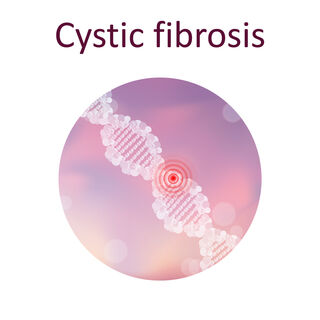Play
How Might a Medical Ethical Dilemma Be Resolved?
A Personal Perspective: Deciding what’s best for a patient.
Posted October 1, 2022 Reviewed by Vanessa Lancaster
Key points
- Healthcare providers can learn something from each patient.
- Many patients who know they are dying choose to complete important tasks before they die.
- Medical ethicists can help decide what to do during difficult health circumstances.

I have always felt that each of my patients can teach me something. Some patients have taught me many lessons, especially Jordan*, born with cystic fibrosis (CF). CF is a genetic illness that can cause severe lung disease.
I met Jordan in the mid-1990s as Director of the CF Center, where he sought treatment. He was 14 years old. At that time, the average age of survival for patients with CF was their early 20s.
When we first met, I recommended that one of his lungs be removed as it was so diseased it was causing him to be hospitalized every month to receive intravenous antibiotics. After surgery, his lung disease stabilized for a few years.
At that time, I had started counseling some of my patients with CF individually. I was encouraged to do so by a psychiatrist friend who had invited and observed my participation in family therapy sessions under his supervision. I had dozens of conversations with Jordan about crucial issues in his life, and I taught him how to use self-hypnosis to deal with the many challenges related to CF.
Jordan and I established a close bond. On one occasion, he told me how appreciative he was that he could say to me things that he had not shared with anyone else.
On another occasion, during hypnosis, he told me that he thinks life is precious because it is during life that souls interact and are able to make new links. In other words, while the soul exists beyond this life, unique links are made within life on earth. Jordan told me that now that we had met, his soul and mine would be linked forever. This link would remain even after one or both of us die.
Our bond existed beyond the CF Center. When Jordan graduated from high school, he invited me, my wife, and my family to his graduation celebration in his home’s backyard. We attended gladly. He chose to attend Syracuse University, near the CF Center, in case he developed health complications. I had the privilege of writing a letter of recommendation to his university, which helped him to receive a scholarship.
A Life-Threatening Bleed
Early in his sophomore year, Jordan arrived emergently at the hospital because he had suddenly coughed up a large amount of blood and was in danger of dying. (In CF patients, the lung disease may erode into a major artery, causing life-threatening bleeding.) I met him at the hospital. His family lived three hours away and had not yet arrived.
“I don’t want to die,” he told me as he coughed up more blood. I told Jordan that we would try to stop the bleeding but would have to put him on a breathing machine (ventilator). “But I don’t want to be on a ventilator,” he protested. This request was consistent with what Jordan had told me in the past. When his time came, he did not want to suffer or prolong the dying process by being on a ventilator. He was aware that patients with CF usually cannot recover after being placed on a ventilator when they become very ill.
I explained that he would only be on the ventilator for a short period while we worked on stopping his bleeding. He consented but added, “Promise me that you won’t put me on it for a long time. And make sure that they give me medicines, so I won’t know what’s happening. I don’t want to remember anything.”
“I promise,” I said.
While waiting for the anesthesiologist, Jordan asked me to tell his girlfriend that he loved her, “And please take care of her.” He then slipped off a ring his girlfriend had given him and gave it to me. “Please give it to my girlfriend,” he said.
“I’ll give you the ring back after the procedure,” I said as I slipped it into my shirt pocket.
“I love you,” he said for the first time.
“I love you,” I responded.
I have learned that patients who are about to die sometimes come to this realization before their physicians. Many patients who know they are dying choose to complete important tasks before they die. I think this is what Jordan was doing.
We were able to stop his bleeding. However, the following morning, once he was taken off the ventilator, Jordan developed a lot of breathing difficulty because his remaining lung was full of blood. Then, he lost consciousness. The doctor in charge of the intensive care unit told me that Jordan needed to be placed back on the ventilator. “Otherwise, he is going to die,” she emphasized.
“But he doesn’t want to be on a ventilator,” I protested.
The intensivist repeated her warning about his impending death. I was unsure what to do. On the one hand, he had a small chance to survive and be able to resume his college life. On the other hand, his CF was likely to cause his death at some point in the not-so-distant future, and now his lung was further damaged by the blood. Most importantly, he had told me he did not want to be placed on a ventilator long-term. His family left the decision in my hands.
Even though it was a difficult decision to make, it felt right for me to accept it. Physicians usually ask and expect the patient or family to make such decisions today. In this way, family members can decide based on their faith and values, and the physician’s considerations do not come into play. However, when families decide, they have to live with the consequences for the rest of their lives.
Perhaps in an ideal world, when the physician knows the patient and family very well, it may be better in some circumstances to leave the decision to the professional.
But I still did not know what I should decide. Therefore, I chose to call the hospital’s ethicist. Often, hospitals employ professionals who specialize in medical ethics to help determine what to do during difficult circumstances.
The ethicist, who was quite familiar with CF, listened carefully to my dilemma. He said, “Either decision is ethically correct. You can choose to let him go and thus honor his wish not to be put on the ventilator. Or, you can place him on the ventilator because you want to give him a chance to live, which is consistent with your respect for life as a physician. But if he survives, he might become angry at you for not following his wish.”
That was not helpful, I thought to myself. What should I decide?
I invite the readers to consider what decision they might have made in this circumstance. In part 2 of this post I share what many medical professionals have told me that they would have done, and what I chose to do.
Portions of this post were published in Pediatric Pulmonology (Anbar, 2001).
* The events and conversations in this blog series have been recreated from the author's memory of real-world situations. The name and identifying details of the patient have been changed to protect his privacy and that of his family. The patient gave his written permission to use his medical information in publications.
References
Anbar, R. D. (2001). The closure and the rings: When a physician disregards a patient’s wish. Pediatr Pulm, 31:76-79.




